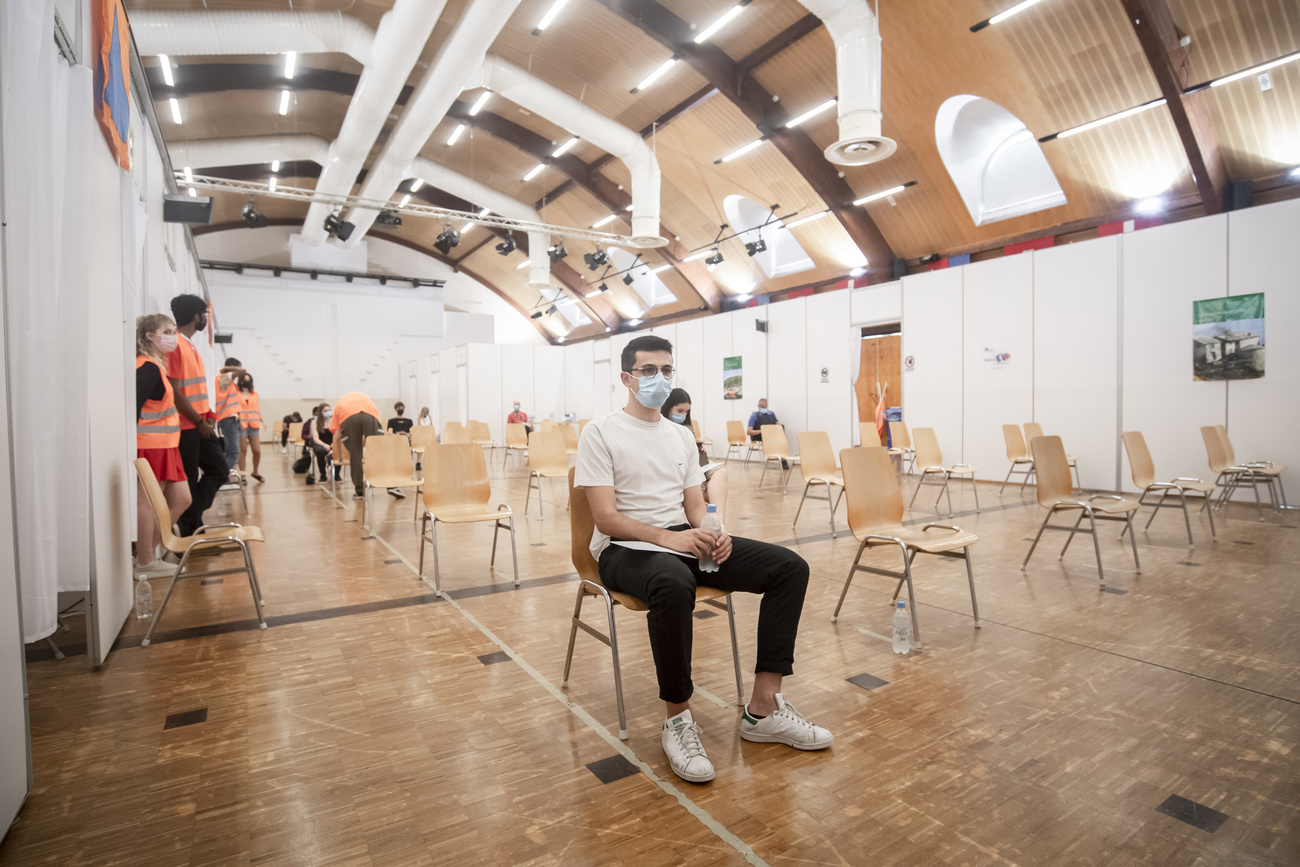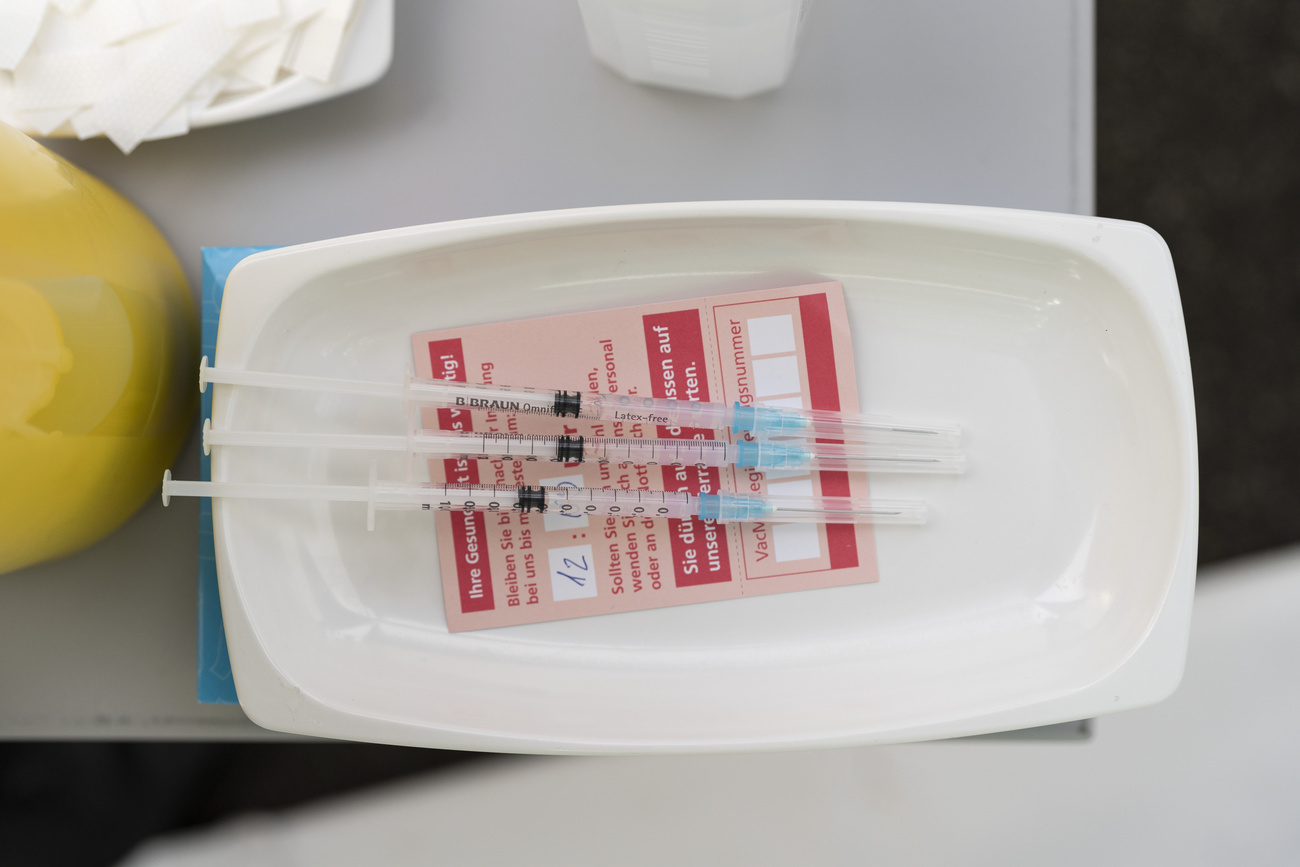
Many Swiss could prefer wider vaccine choice, survey finds

Some 72% of non-vaccinated people in Switzerland are holding out due to fears about mRNA technology, while 31% are “fundamentally” against the Covid-19 vaccination, according to a survey.
The representative survey by research group Sotomo, reported in the SonntagsZeitung, was carried out in July, well before the introduction of the Covid certificate obligation this week.
However, according to experts interviewed by the paper, it could be a sign that Switzerland’s vaccination campaign would be boosted by making available other jabs which don’t use mRNA.
Currently, Swiss receive either a Pfizer/BioNTech or Moderna jab, both of which use mRNA technology – a process that injects a fragment of the coronavirus blueprint into human cells, to prompt the body to produce a defensive response.

More
Coronavirus: Wealthy Switzerland is suffering from vaccine fatigue
Johnson & Johnson’s vaccine meanwhile, a viral vector model which only needs one rather than two shots, has been approved by medical regulator Swissmedic, but no deal has been reached with authorities on supplying it.
The SonntagsZeitung says talks are ongoing with the US company but only a small amount of purchases are planned, specifically for those who can’t receive the mRNA jab for medical reasons.
“We are keen to see more people getting vaccinated. We would thus welcome when a larger amount of Johnson & Johnson vaccines were made available,” Rudolf Hauri, president of the Association of Cantonal Doctors, told the newspaper.
Ruth Humbel, president of the parliamentary health committee, said authorities should “as quickly as possible” buy up enough Johnson & Johnson doses to cater for “all those who want to receive only this vaccine”.

More
Vaccine demand rises in response to Covid certificate plans
Danish model
Currently, around 60% of over-12-year-olds in Switzerland are fully vaccinated. Protests and resistance to the campaign – especially after the introduction of the Covid certificate obligation this week – is however widespread.
Epidemiologist Marcel Tanner told the NZZ am Sonntag paper that a vaccination figure of 70-80% could represent a point at which “new perspectives could be developed, in which we could imagine living with the virus”.
Christoph Berger, head of the Federal Vaccination Commission, told the same newspaper that Switzerland could look to Denmark, where 84% of over-12-year-olds are vaccinated and where Covid measures – including certificate obligations – have been lifted.

More
Reasons to get vaccinated differ with age, survey says
“If the Danish strategy works, it could be a guide for us,” said Berger, who added that in the coming weeks – before the arrival of colder temperatures – as many people as possible should be vaccinated, though he didn’t give a target figure.
In the meantime, cantons, under the impetus of a new push by health minister Alain Berset, are trying to accelerate their campaigns with various strategies: mobile vaccination units, contacting citizens directly, or turning up in shopping centres or educational centres.
The Federal Office of Public Health is also developing yet another new campaign to try to incite more people to get the jabs, the NZZ am Sonntag writes. According to a FOPH spokesman, the current target group is young adults.

In compliance with the JTI standards
More: SWI swissinfo.ch certified by the Journalism Trust Initiative






























You can find an overview of ongoing debates with our journalists here . Please join us!
If you want to start a conversation about a topic raised in this article or want to report factual errors, email us at english@swissinfo.ch.